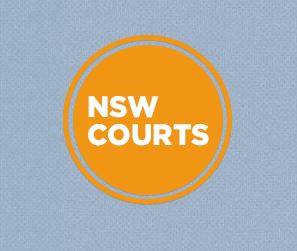The Criminal Procedure Amendment (Mandatory Pre-trial Defence Disclosure) Bill was introduced by the NSW government in 2013, and passed by both houses of Parliament.
It is embodied in Part 3, Division 3 of the Criminal Procedure Act (‘the Act’) which essentially requires the prosecution and defence in District or Supreme Court criminal trial proceedings to serve one-another with notices setting out their cases.
Section 141 of the Act says that:
After the indictment is presented or filed in proceedings, the following pre-trial disclosure is required:
- the prosecutor is to give notice of the prosecution case to the accused person in accordance with section 142,
- the accused person is to give notice of the defence response to the prosecution’s notice in accordance with section 143,
- the prosecution is to give notice of the prosecution response to the defence response in accordance with section 144.
Whereas the prosecution has always been required to provide its evidence, defendants have traditionally been allowed to exercise their right to silence.
However, section 143 of the Act now requires the defence to provide the prosecution with written advice of a whole range of matters, including:
- the nature of the accused person’s defence, including particular defences to be relied on,
- the facts, matters or circumstances on which the prosecution intends to rely to prove guilt (as indicated in the prosecution’s notice under section 142) and with which the accused person intends to take issue,
- points of law which the accused person intends to raise,
- notice of any consent that the accused person proposes to give at the trial under section 190 of the Evidence Act 1995 in relation to each of the following:
- a statement of a witness that the prosecutor proposes to adduce at the trial,
- a statement as to whether or not the accused person intends to give any notice under section 150 (Notice of alibi) or, if the accused person has already given such a notice, a statement that the notice has been given,
- a statement as to whether or not the accused person intends to give any notice under section 151 (Notice of intention to adduce evidence of substantial mental impairment).
Under the same section, the Court can order the defence to serve:
- a copy of any report, relevant to the trial, that has been prepared by a person whom the accused person intends to call as an expert witness at the trial,
- if the prosecutor disclosed an intention to adduce evidence at the trial that has been obtained by means of surveillance, notice as to whether the accused person proposes to require the prosecutor to call any witnesses to corroborate that evidence and, if so, which witnesses will be required,
- notice as to whether the accused person proposes to raise any issue with respect to the continuity of custody of any proposed exhibit disclosed by the prosecutor,
- if the prosecutor disclosed an intention to tender at the trial any transcript, notice as to whether the accused person accepts the transcript as accurate and, if not, in what respect the transcript is disputed,
- notice as to whether the accused person proposes to dispute the authenticity or accuracy of any proposed documentary evidence or other exhibit disclosed by the prosecutor,
- notice of any significant issue the accused person proposes to raise regarding the form of the indictment, severability of the charges or separate trials for the charges,
- notice of any consent the accused person proposes to give under section 184 of the Evidence Act 1995 .
Reason Behind the Law
According to the government, the law is aimed at improving the efficiency of trials by preventing any new defences or unrelated evidence from delaying proceedings, thereby “narrow[ing] the contested issues at trial” and leading to “shorter trials”.
Criticism
However, the NSW Law Society argues that the law undermines the right to silence and the presumption of innocence – forcing defendants to disclose an enormous amount of information and significantly easing the prosecution’s burden of adducing evidence to prove the defendant’s guilt.
The Society adds that practical considerations, such as speeding up trials, should not stand in the way of fundamental legal safeguards and protections, which are designed to prevent innocent people from being sent to prison by levelling the playing field between the defendant and well-resourced state.
It is a long established tradition of the criminal justice system that “it is up to the state with its greater resources, to investigate and prove its own case, and that the individual should not be conscripted into helping the state fulfill this task”, although some conservative commentators argue that this places an unfairly heavy burden on the prosecution.
Encouraging Charge Negotiations
‘Representations’ are letters written by the defence to the prosecution, often outlining the problems in the prosecution case and any defences that may be available, and seeking to have charges withdrawn or downgraded.
In the past, some criminal defence lawyers have been reluctant to use representations for fear of ‘tipping off’ the prosecution, and giving them an opportunity to take advantage of their enormous resources to repair their case or conduct investigations which might call into question the veracity of any defence.
One of the effects of the recent law is that there is little merit to refraining from preparing representations, because the defence case will need to be disclosed in any event.
This has arguably encouraged negotiations between the defence and prosecution, leading to a greater number cases being ‘settled’ before trial – whether by way of the cases being dropped altogether or charges reduced or downgraded.
So while mandatory defence disclosures certainly encroach upon fundamental legal protections, there is an argument that they indeed bring about speedier outcomes, and can help avert the expense and stress of a lengthy District or Supreme Court trial.











